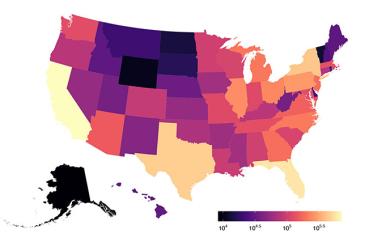Is your forgetfulness cause for concern?
When is the last time you gave serious thought to memory loss and its effect on your well-being? Can't remember? That's OK — it doesn't mean you should be concerned.
Just because you sometimes forget your neighbor's name doesn't mean you're developing dementia, a loss of brain function that affects memory, thinking and behavior. But there are signs and risk factors that may point to more serious problems, such as Alzheimer's disease, the most common type of dementia.
Julie Schneider, MD, a neurologist and neuropathologist at the Rush Alzheimer's Disease Center, shares some helpful information on memory loss, such as when to be concerned and what you can do to stay sharp.
Is memory loss an inevitable part of aging?
While it might seem like forgetfulness comes with growing older, Schneider says it's not a given.
"We have conducted studies at Rush where we use annual cognitive testing to track memory and other cognitive functions in people from ages 65 to over 100, and some of them don't have any memory loss with age. So you certainly can age without having any significant memory loss."
When to be concerned
On occasion, all of us forget things. It's when forgetfulness becomes more persistent and severe, affects everyday function, and other people who are close to you take notice that it may signal there is a problem.
"For instance, you may frequently forget what people tell you, forget recent events, or get lost in familiar locations," Schneider explains. "In addition, a problem may become evident when your family or friends note that you are asking repetitive questions or repeating yourself or having other memory problems."
If you have a first-degree relative who has Alzheimer's, your risk for the disease goes up — similar to other diseases that run in families — so that would be a reason to be especially mindful of any memory changes. But if you occasionally misplace things, forget a word or forget someone's name, those aren't reasons to be concerned.
What can cause memory loss
- Some medications — such as pain medicines or drugs used to treat anxiety or urinary incontinence — can lead to memory issues. If you stop taking the drug that's causing the problem, your memory will likely improve.
- Medical and psychological problems — including depression, and deficiencies of thyroid and vitamin B12 — can all cause memory issues, and these also may be reversible once the underlying condition is treated.
- If you have a stroke or a transient ischemic attack, you may experience memory loss but may recover some of your previous functioning.
- If you have a neurodegenerative disease, such as Alzheimer's, memory loss will ultimately progress, and there's no known way of reversing it.
It's when forgetfulness becomes more persistent and severe, affects everyday function, and other people who are close to you take notice that it may signal there is a problem.
Lowering your risk of dementia
Research at Rush and other centers worldwide has shown that the following behaviors may help protect against dementia and Alzheimer's disease, or delay the onset:
- Being more involved in cognitive activities (e.g., reading and playing games)
- Having a larger social network
- Exercising regularly
- Eating a diet, like the Mediterranean Diet, that is low in saturated fats, and rich in vitamin E and healthy fats such as omega-3
- Following the MIND diet, which emphasizes eating from 10 brain-healthy food groups (green leafy vegetables, all other vegetables, nuts, berries, beans, whole grains, fish, poultry, olive oil and wine) and avoiding foods from five unhealthy groups (red meats, butter and stick margarine, cheeses, pastries and sweets, and fried or fast food)
- Having a higher purpose in life — deriving meaning from life's experiences
- Expanding your "life space," the environment in which you live, which includes your home, neighborhood, community and beyond




